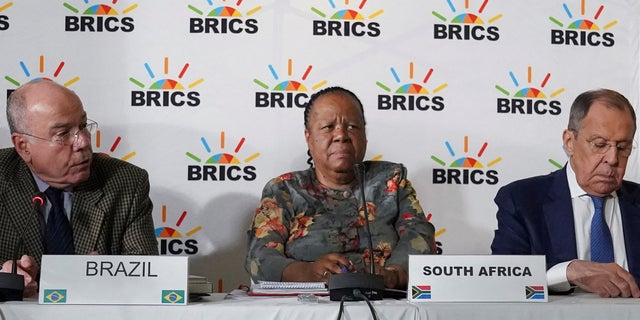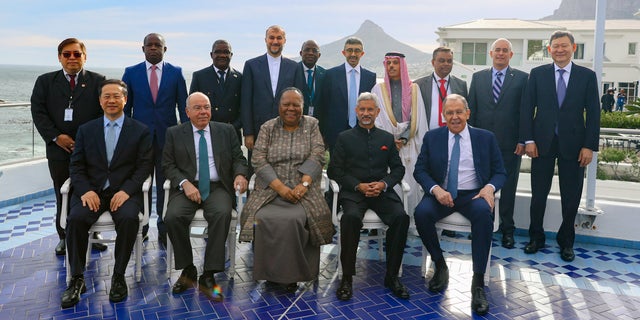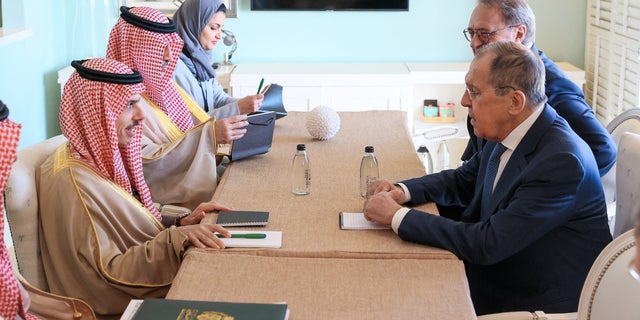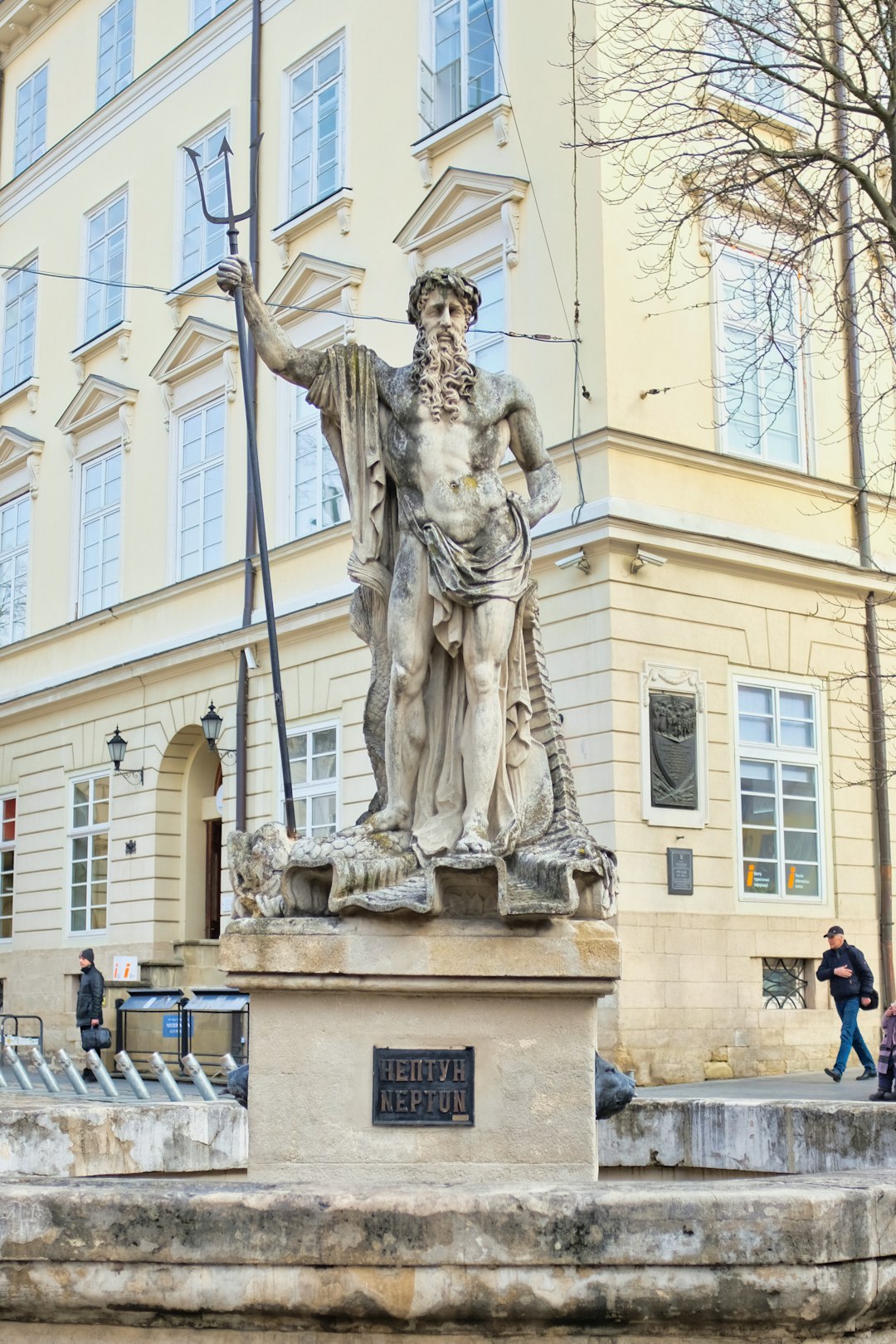The Empire Strikes Back: Putin’s Drive To Revive Soviet Borders Is Doomed
https://barry-gander.medium.com/the-empire-strikes-back-putins-drive-to-revive-soviet-borders-is-doomed-faf588929d03
Barry Gander
Medium, March 26, 2023
Thousands flee Putin’s Russia into Georgia as part of a million-person refugee tide.
We have been here before.
History gives us a way to forecast Russia’s future, as the reign of state control again erodes the country’s ability to move forward.
These events have happened back in 1991, when Soviet president Mikhail Gorbachev was faced with a coup by Soviet security forces. But the coup’s leaders had no popular support, and the ruling bureaucracy was also split. Boris Yeltsin climbed aboard a tank, the people of Moscow rallied for freedom and democracy, and the coup leaders surrendered within days.
The coup by the security forces actually accelerated the demise of the Soviet Union. It gave the people of the USSR a stark choice. Yes, independence was frightening, but it could not be worse than the totalitarian alternative. In turn, republic after Soviet republic tumbled towards independence. In Moscow a jubilant crowd tore down the statue of “Iron” Felix Dzerzhinsky, the founder of the secret police, right in front of the KGB headquarters.
That revolution for freedom was extinguished in the heartland, a bit at a time, by Putin, through assassination, mass bombings and military occupation.
Now however Putin’s overlay of dictatorship is also fraying, and the pattern of freedom is reasserting itself again. This is “Overthrow 2.0”.
Putin has just been betrayed by China, which is about to tear out Russia’s Asian heartland.
Russia’s other dependencies are attracted to Western values, and are seeking independence — just like 1991.
Once an area has tasted independence from a dominating power, it will not go back into its box.
This is the problem facing Putin as he fumbles to put back the pieces of the old Soviet empire.
He has denied that he has a goal of re-establishing the Soviet Empire. His denials lost credibility after he ordered Russian troops to be sent to eastern Ukraine. We have been here before with this man.
He has continually questioned Ukraine’s sovereignty. In 2008, Russia supported two Georgian separatist regions and has backed a breakaway region of Moldova, Transnistria, since the 1990s. He annexed Ukraine’s Crimea peninsula in 2014. He became the first person to annex sovereign foreign territory by force since Saddam Hussein in Kuwait. He cut off Europe’s energy supplies, threatened the use of nukes, and ran a fascist propaganda campaign around the world.
Last year his militia took over eastern Ukraine’s Donetsk and Lugansk rebel republics and he recognized them as “independent-with-Russian-troops”.
Weeks before Russia’s invasion of Ukraine he was insisting that he had no intention of attacking Ukraine and accused the U.S. and NATO of stoking the tension by refusing to accept Moscow’s demands for “security guarantees” from the Western alliance.
Ukraine wants to be part of Europe. There is no guarantee Putin could get that would change that perspective. It also wants to be part of NATO. Both organizations are voluntary bodies — no one is forced to belong and no “security guarantees” can be part of an equation where the people have picked the path to democracy.
Putin actually wants guarantees against freedom, not NATO.
The desire for freedom is hard to detect in Russia itself, because the people are so muffled.
But it can be seen more clearly in Russia’s fringe of reluctant puppet states, where the control is less. They are able to make the choice that faced the Russians themselves in 1991: do you want freedom or do you want to be ruled by a gong show run by a poisoning dictator and his five gangs of thieves.
It is not really surprising that the West “let” Putin turn Russia into a concentration camp. At any step where a change could be made, it would mean fighting a world war. That is what kept the allies from stopping Hitler when he occupied the Rhineland. In a democracy, could the French President have gone to his people with a motivating rationale for war against Hitler?
Dictatorships have it easy; democratic countermeasures are hard. We need to have some sympathy and understanding for the bewildered democracies in Europe in the 1930s.
But we have learned from that era.
In the build-up to Putin’s invasion of Ukraine, to paraphrase Winston Churchill’s definition of appeasement, we are feeding the crocodiles, hoping they will eat us last.
(And I will keep calling this “Putin’s War”, not “Russia’s War”. The Russians were never asked for their approval. That would have meant the need for a reason for the war…beyond ego-driven empire-building)
Instead of standing on our principles about the universal values of human rights and human life, we quibbled with Russia’s propagandists about whether Russia’s feelings were being hurt. Is it uncomfortable for you to have NATO so close? OOPS — our fault!
But it has never been about NATO. Russia has in the past acknowledged Ukraine’s right to join NATO. Taking NATO off the table will not quell his insecurity; what he fears is democracy. In fact, up until Putin’s invasion of Ukraine, NATO had been drawing down resources in Europe, not increasing them.
Our focus therefore has to be the final triumph of Western-style democracy over bygone dictatorships. NO appeasement or apologies will be possible, because this is a binary game: democracy or dictatorship.
And in the process, we cannot promote democracy while treating the leaders of the world’s most repressive regimes as equals, advises Garry Kasparov, former chess champion turned activist. His mother had hung a sign above his bed — a saying of the Soviet dissidents — “If not you, who else?” We are all responsible for seeing that justice is done.
We have a lot on our side.
Almost every nation in the world that matters today is democratic. There was a time in the 1940s when dictators ruled from the English Channel to the Bering Sea. Now there are only TWO meaningful hold-outs: Russia and China.
I may be wrong, but I sense that China can evolve; we don’t need to shake a spear at them. Their biggest existential threat anyway is India, not America: India is poised to take their jobs and industry.
Our goal in Russia would ideally be to provide the citizens with hope and possibilities for a brighter future.
They exist right now in an increasingly fraught environment. The war is going badly. Russia currently controls only 17 percent of Ukrainian territory, which is the least amount of area that its forces have occupied since April. Russian leaders can see that the walls of their tents are coming down, and the light is getting in.
And sadly, Russia will not become a democracy until it falls apart. Russia is not really a nation-state but a premodern multiethnic empire living for 300 years on geographic expansion and resource looting.
Russia’s influence in the region has waned and citizens have repeatedly signaled their desire to escape Moscow’s grasp. Subservience to Putin is now required. If the regions could be free, why could not the Russians themselves?
This almost happened, in the elections in 2011. They were the largest protests in Russia since the Soviet collapse. Ordinary Russians showed themselves to have both the will and the capability to threaten his grip on power.
With this fear of democracy as his overriding motive, Putin will remain committed to undermining Georgian, Moldovan, Armenian, etc. democracy and sovereignty.
Russia has gotten so good at quelling regional aspirations that the government of Iran asked Russia for help in suppressing a popular uprising.

The former USSR. All the states not marked “Russia” will become independent as soon as they can. The central Asia group is now being courted by China, in a display of breathtaking hypocrisy by President Xi.
In Kazakhstan, for example, there were nationwide protests against fuel prices last year. The protests morphed into a working-class grievance campaign. The President could not get a response from his own security forces and called on the Russians. The crowds were brutally crushed and 238 people died. The former defence minister has just been jailed for not doing enough to protect the government.
Dagestan is a mountainous republic within the Russian Federation. There have been confrontations between police and crowds of mothers who were infuriated that their sons were being drafted for the war in Ukraine.
Some other ethnic minority parts of the Russian Federation, including its 22 ethnic republics, as well as other far-flung territories, or krais, even majority ethnic Russian ones, have seen anti-mobilization protests in recent weeks — as far afield as the Siberian city of Yakutsk, the capital of the Sakha Republic and Vladivostok in Russia’s far east.
While they have died down for now they have left sullen anger and resentment, which is compounding long-standing economic and local political grievances in the Russian Federation’s periphery.
Russia’s ethnic republics and far-flung territories will not remain quiet and subdued for much longer, suspects Russian-born political scientist Sergej Sumlenny, a former chief editor at Russian business broadcaster RBC-TV.
“The republics have long chafed under Moscow’s imperial rule — so too territories in the far east and parts of remote northern Russia.” The seeds of potential rebellion, especially in the North Caucasus, the Sakha Republic and the Middle Volga, are being sown, he thinks. Increasing economic distress and impoverishment, the exploitation of natural resources only for the benefit of Moscow, the failure to drive development and investment, a reckless attitude to pollution and environmental degradation, and governance swinging from repression to negligence are all stoking simmering grievance.”
What could trigger real revolt? “It could be a small spark,” he says. “Look at what triggered the Arab spring — a Tunisian fruit vendor setting himself on fire over injustice. Or look at Iran now: it can be something [like] … the death of a 22-year-old Kurdish woman because she wasn’t wearing a hijab. Revolt is often be sparked by perceived insult.
Russia’s Defense Minister Sergei Shoigu made a comparison to Yugoslavia, warning external pressures combined with internal threats risk breaking up the Russian Federation along ethnic and religious lines. At the Beijing Xiangshan Forum in 2019, Shoigu said: “Chaos and the collapse of statehood are becoming the norm.”
When the Soviet Union dissolved it wasn’t only the big constituent republics of the Soviet Union — like Ukraine, the Baltic states and Kazakhstan — that sought independence. Many of Russia’s smaller republics and even some far-flung predominantly Russian territories, cities and regions used the political turmoil to claim or to try to grab autonomy.
In 1990, fourteen of the 22 republics of the Russian Federation declared themselves sovereign and when a Federation Treaty was being negotiated the heads of several republics, including Tatarstan, demanded the new post-Communist Russian constitution recognize their “state sovereignty” as well as a right to secede from the Russian Federation. Chechnya refused to sign the Federation Treaty and declared independence, triggering an 18-month war of liberation.
Putin decided that the sovereignty of the Russian Federation would override any declaration of sovereignty by the republics or other federal subjects. Provincial authorities have been weakened.
Any candidate in a regional election who wants to register must have Kremlin backing and Putin can sack and appoint regional heads at will.
In 2021 the Russian justice ministry suspended the activities of Tatarstan’s All-Tatar Public Center “due to its extremist activities.”
Last month, retired U.S. General Ben Hodges, a former commander of the U.S. Army in Europe and a veteran of Iraq and Afghanistan, said the West should prepare for the Russian Federation breaking up within the next four or five years. “We were not prepared for the collapse of the Soviet Union. We need to be prepared for this possibility,” he told Times Radio.
Regional elites may start calculating that Moscow isn’t able to stop them breaking away, he says. “Once it starts, it could unravel fast.”
Western policymakers seem unnerved by the possibility of a break-up of nuclear-armed Russia,
That was also the case with the dissolution of the Soviet Union. Western leaders preferred the status quo and frowned on Ukraine and others breaking away. “Americans will not support those who seek independence in order to replace a far-off tyranny with a local despotism. They will not aid those who promote a suicidal nationalism based upon ethnic hatred,” President George Bush said in an infamous 1991 speech in Ukraine nicknamed the Chicken Kyiv speech.
Bureaucrats will always prefer the status quo to a social revolution — no matter that it is justified.
Oleksiy Danilov, Secretary of Ukraine’s National Security and Defense Council, said in September that the process of Russian dissolution “has already begun and will accelerate.” He said he obtained and analyzed the results of a social survey conducted in Russia. Danilov said the focus was on separatism in the central Russian Republic of Tatarstan and the southern Chechen Republic.
Tatarstan and Chechnya have large Muslim populations, and had declared their independence at the end of the Soviet Union. Chechnya fought two wars with Russia. Failure in a war of aggression without cause could spur the fires of separatism throughout the Russian Federation.
Moldova is a tiny nation of just 2.6 million people that borders Ukraine to the southwest. Russia has 1,500 troops there supporting separatists, just as it did in Ukraine. Moldova’s government has opposed the Russian presence since it gained independence in the Soviet breakup in 1991, but has no way of forcing the Russians to leave.
Georgia, on Russia’s southwestern frontier, remains in a state of dispute. If Russian occupation forces left, there is no doubt it would swing West.
At the United Nations in March of 2022, six former republics voted in favor of a resolution condemning Russia and calling for its immediate withdrawal from Ukraine. Seven more abstained or were conveniently absent. The only country to take Russia’s side, aside from Russia itself, was Belarus. Which has Russian troops on the ground.
It is not only a geographic fragmentation that Russia is facing, but a horizontal war-of-the-dukedoms. Different factions within the government have their own armies. They could fight for power because they have their own supplies of weapons. Even criminals have weapons. Chechens have weapons. The Internal Ministry has weapons. The Defence Ministry has weapons. The security forces — KGB/FSB — have weapons. Everybody has weapons. It could be chaos in the streets. It will be the same situation as 1917–18.
Political scientist Ekaterina Schulmann told The Economist that “the Russian Federation as we know it is self-liquidating and passing into a failed-state phase.” Its administration, she continued, is unable to carry out its basic functions:
“This includes the most basic mandate of any government, which is the protection of its citizenry. But Putin’s regime now presents the greatest threat to that citizenry by threatening to forcibly conscript them in the hundreds of thousands and send them into battle with almost no proper equipment and even less training.”
The Kremlin’s decision to build its army by having each region of Russia create battalions of soldiers is unbelievably stupid. At least eight regions have created such units. Leaders of these regions have ready-made battalions under their command to enforce a separation.
Western governments should prepare a response to this rule of disorder.
It was to Russia’s extreme misfortune that Yeltsin handed over power to Putin.
It was Russia’s misfortune before that, to have Stalin take power from Lenin.
And before that, to have Lenin take power from the Tsar.
If Russia were a car on a highway, it would be veering off-course every few hours, pulled to the right or left. Anywhere there is a sign that says “Higher Power Here”.
I would feel sorry for them, but I’m impatient to see what a democratic Russia — stripped of the trappings of empire — could do for the world.
They deserve better than they’ve got, for sure.
Barry Gander
A Canadian from Connecticut: 2 strikes against me! I'm a top writer, looking for the Meaning under the headlines. Follow me on Mastodon @Barry



